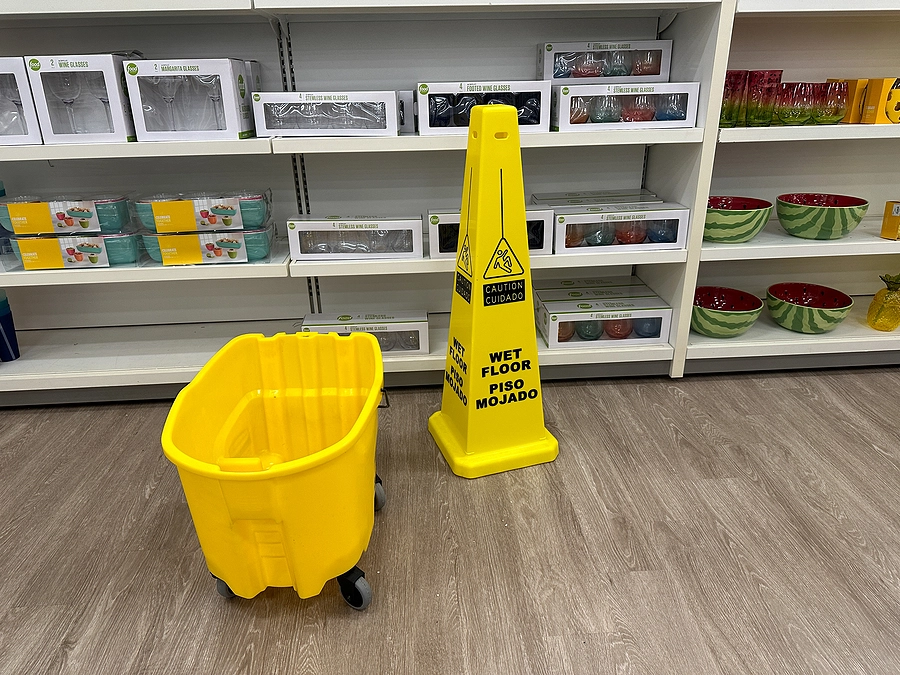JONES LAW GROUPYour Lawyers for Life! Personal Injury Law Firm in St. Petersburg

Nearly 25 million people have to visit emergency rooms in the U.S. each year. A major contributing factor is personal injury accidents. When someone’s negligence causes another to suffer, the victim should be able to obtain the compensation they deserve from the negligent party’s insurance company. But dealing with an insurance claim can be challenging, […]
Call our personal injury law office directly at (727) 512-9847
At Jones Law Group in St. Petersburg, FL, we would like to hear from you. Contact us for a free personal injury case consultation.
Call our personal injury law office at (727) 512-9847
Get educated on the Florida's personal injury laws and more.
Nearly 25 million people have to visit emergency rooms in the U.S. each year. A major contributing factor is personal injury accidents. When someone’s negligence causes another to suffer, the victim should be able to obtain the compensation they deserve from the negligent party’s insurance company.
But dealing with an insurance claim can be challenging, especially when the insurance company won’t settle. If you find yourself in this situation, it’s essential to understand why insurers may not settle, your rights in such a scenario, and why you need an attorney to help you seek a fair resolution.
Here’s a look at what happens when an insurance company won’t settle and what actions you can take to protect your interests.
The attorneys with the Jones Law Group will fight to help you obtain maximum compensation as quickly as possible. But we’ll also be ready to stand up for your rights in court if the insurer refuses to do the right thing. Learn more by contacting us online or calling (727) 571-1333 for a free consultation.
Some insurance companies will find any excuse they can to refuse to settle. These are just a few they use on a regular basis.
The statute of limitations is a legal concept that establishes a time limit within which a claimant must file a lawsuit or legal claim after an incident occurs. Florida’s statute of limitations is four years. If you fail to file your claim within the specified period, you could lose the right to seek compensation through legal action.
Individuals involved in an incident must know the statute of limitations applicable to their claim. Consulting with an attorney early in the claims process can help initiate all necessary legal actions within the appropriate time frame.
Evidence is the foundation of any insurance claim or legal case. It helps support the claimant’s version of events, establish liability, and quantify the damages suffered.
However, over time, crucial evidence can be lost, destroyed, or deteriorated, making it challenging to prove the claimant’s case. The insurer may claim you don’t deserve a penny because critical evidence is missing.
Preserving evidence as soon as possible after an incident is crucial. This includes photographs, witness statements, police reports, medical records, and other documentation relevant to the claim. Promptly gathering and preserving evidence helps ensure that it remains accurate, reliable, and admissible in legal proceedings.
An experienced personal injury attorney can guide claimants in preserving evidence and preventing its loss over time. Additionally, their legal team can use their resources to gather evidence from various sources to build a strong case.
Insurance companies know the emotional and financial toll that lengthy claims processes can have on claimants. By intentionally prolonging the negotiations or offering unreasonably low settlement amounts, insurers may attempt to wear down the claimant’s resolve.
Facing mounting medical bills, property damage costs, or loss of income can be overwhelming, and insurance companies may exploit this vulnerability to pressure claimants into accepting inadequate settlements.
Some claimants may become frustrated, discouraged, or financially strained, making them consider settling for less than their claim is worth.
Negligence victims need to remember their rights and the actual value of their claims. Seeking legal representation can level the playing field and provide support during the negotiations. An experienced attorney can advocate for the claimant’s best interests and ensure they receive fair compensation.
You’d like to think the at-fault party’s insurer would do the right thing and give you the money you deserve. Unfortunately, that’s not always the case. If the insurance company refuses to offer an equitable settlement, you must realize you have rights.
Insurance companies must handle claims promptly and fairly. If they unreasonably delay processing your claim or intentionally prolong the claims process, you have the right to challenge these tactics.
You can fight for what’s fair. The best way to do that is to get legal help as soon as possible.
Hiring an experienced personal injury attorney is one of the most critical steps to protect your rights when dealing with an insurance company’s resistance to settle. An attorney can assess the strength of your claim, negotiate with the insurer on your behalf, and explore all available legal options.
You must do your due diligence when hiring a lawyer, however. There are some firms known as “settlement mills.” They’ll often accept unfair settlements to end a case quickly so they can move on to the next one.
Reputable law firms like the Jones Law Group will never do that. Don’t hesitate to ask the attorneys you’re considering as many questions as you can. You need to know how they handle settlement negotiations.
It’s typically in the best interests of all parties to settle the case. Neither side looks forward to going to court. It takes much more time and is typically much more expensive. Those are the main reasons why only about 4 percent of personal injury cases go to trial.
But that’s what will happen if settlement negotiations are unsuccessful. At trial, both parties present their evidence, witnesses, and legal arguments to establish their case.
During the trial, the judge or jury evaluates the evidence presented and determines the liability of the parties involved. If liability is established, they will also decide the appropriate amount of compensation, if any, to be awarded to the claimant.
Trials can be complex and time-consuming, involving legal procedures, expert testimonies, and cross-examinations. An experienced attorney will guide claimants through the trial process and advocate for their interests in court.
Seeking legal representation from a skilled personal injury lawyer can protect your rights, ensure prompt action, and improve the likelihood of obtaining fair compensation for your damages and losses.
The Jones Law Group has a team of lawyers who will do everything they can to help you achieve justice. If you would like a free evaluation of your case, use our online form or call (727) 571-1333.

While there has been a trend in recent years showing fewer automobile accidents, the same cannot be said for motorcycle crashes. Since 2001 the number of people in Florida injured in a motorcycle accident has risen by 50%. While the number of deaths of motorcyclists involved in an accident has risen by 90%. The increase […]

Florida Laws Regarding Passengers on a Motorcycle Florida has very relaxed laws on the use of motorcycles. As far as passengers are concerned, they must occupy either a separate seat or a seat meant for two riders and they must have footrests dedicated solely to their use.[1] There is no minimum age requirement for passengers, […]

Without the proper safety measures, a staircase can cause serious injury. The result for some injured individuals is large medical debt, lost wages, and a drastic change to one’s quality of life. Slips and falls are extremely common, accounting for over 8 million hospital emergency room visits each year (the leading cause of visits). Falls […]

The process of filing a personal injury claim for a slip and fall injury at a store involves providing documentation of negligence, injury, and damages to establish liability. Summary Accidents happen, but what happens when a trip to your local convenience store leads to a fall and injury? The shock, pain, and confusion can be […]

A personal injury attorney provides legal representation for those physically or emotionally harmed at the fault of another person. From car accidents to bed bug cases to slip and falls, having a personal injury attorney on your side could be very beneficial to helping you receiving the compensation you deserve. On top of medical bills […]

Summary Personal injury cases can be overwhelming, especially when dealing with the aftermath of an accident. Many accident survivors struggle with the burden of medical bills, lost wages, and other damages. Understanding your rights and options is crucial if you’ve suffered injuries due to a car crash, slip and fall, or another unfortunate incident. The […]
Speak with us before time runs out! In Florida, you have a limited window to file a personal injury case, so speak to an Attorney today.
Call our personal injury law office directly at (727) 512-9847
Jones Law Group is a dedicated personal injury lawyer in St. Petersburg, FL, serving the Tampa Bay area since 2006. Our experienced attorneys specialize in car accidents, slip and fall cases, employment law disputes, construction law issues, and overtime wage claims, fighting for maximum compensation on a contingency fee basis. Contact us for a free consultation to discuss your case.
Call our personal injury law office at (727) 512-9847
© Copyright 2006–2025 Jones Law Group Attorneys at Law. All rights reserved. Privacy Policy Terms of Use
Attorney Advertising.
The information on this website is for general information purposes only. Nothing on this site should be taken as legal advice for any individual case or situation. This information is not intended to create, and receipt or viewing does not constitute, an attorney-client relationship. Past results do not guarantee similar outcomes.
Are you injured or wronged and interested in a consultation? Fill out the form for a free consultation with us.